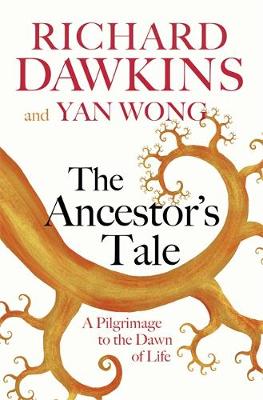In The Ancestor‘s Tale, Richard Dawkins and Yan Wong set off on a journey backwards in evolution. They see themselves as the pilgrims in Chaucer‘s Canterbury Tales, in their case, each journey resulting in a tale about an aspect of evolution in the „shared archaen goal, our Canterbury“. Oxygen and carbon dioxide feature along the way and the travellers have some enlightening information about cyanobacteria and a word of warning about fossil fuel.
„… having said that oxygen is produced by green plants and algae, it is an oversimplification to leave it at that. It is true that plants give off oxygen. But when a plant dies, its decay, in chemical reactions equivalent to burning all its carbonaceous materials, would use up an amount of oxygen equal to all the oxygen released by that plant during its lifetime. There would therefore be no net gain in atmospheric oxygen, but for one thing. Not all dead plants decay. Some of them are laid down as coal (or equivalents), where they are removed from circulation. If all the fossil fuels in the world were burned by humanity, much of the oxygen in the atmosphere would be replaced by carbon dioxide, re- storing the ancient status quo. This is not likely to happen in the near future. But we should not forget that the only reason we have oxygen to breathe is that most of the carbon in the world is tied up underground. We burn it all at our peril.“
Source: Richard Dawkins and Yan Wong, The Ancestor‘s Tale, Orion Pubishing Co, (updated version, 2017)

